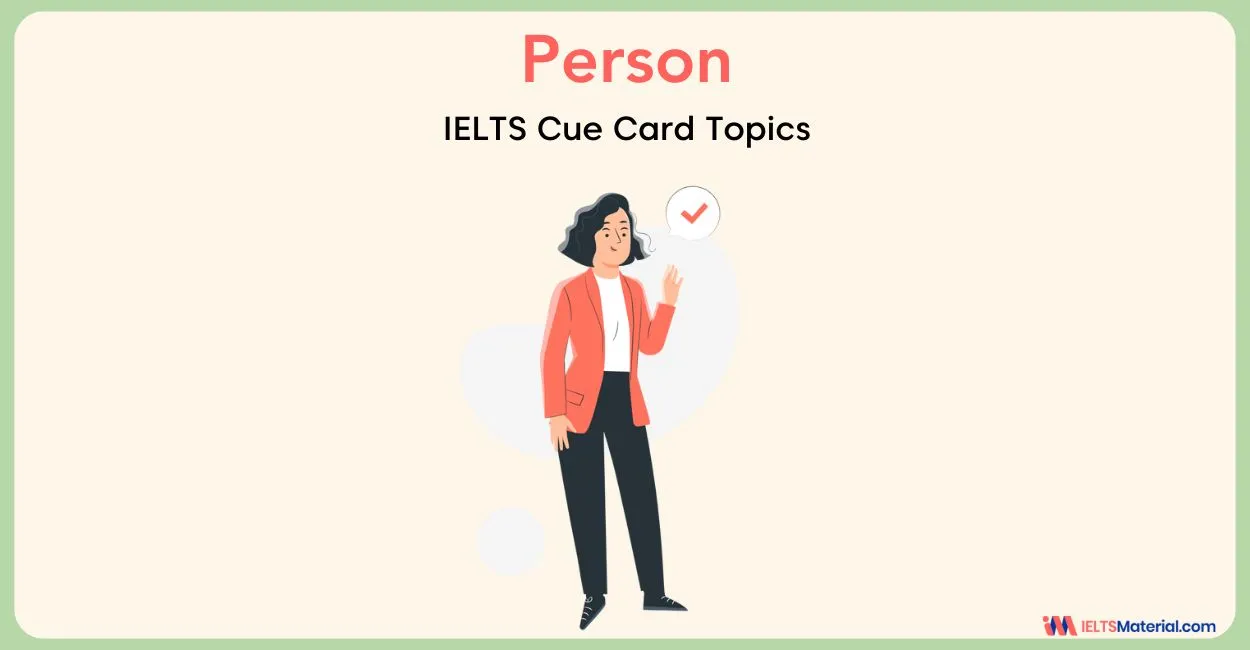Describe a Disagreement You Had With A Friend – IELTS Cue Card Sample Answers
4 min read
Updated On
-
Copy link
Table of Contents

Limited-Time Offer : Access a FREE 10-Day IELTS Study Plan!
This article contains the Describe a disagreement you had with a friend Cue Card Sample Answers.
During Part 2 of the IELTS Speaking test, you will have exactly one minute to prepare and speak on a specific topic. This is the IELTS cue card task. You can learn how to communicate clearly and successfully by reviewing sample answers.
This IELTS cue card gives you an opportunity to share one of your memories of a disagreement you had with a friend.
Practise IELTS Speaking Part 2 by referencing the Cue Card Sample Answers below.
Before you start, learn useful IELTS Speaking test vocabulary with the guide below!
Check more Time – Cue Cards.
For more Cue Cards, take a look at IELTS Speaking Part 2 | Topics, Questions and Samples Answers.
Describe an experience you had as a member of a team
You should say:
- where it was
- who were the members of the team
- what you did together in this team
- and explain why you became a member of this team or explain what the purpose of the team was
Describe a time that you and your friend had a disagreement.
You should say:
- who you disagreed with
- what the disagreement was
- how it happened and explain
- how this disagreement was resolved
Sample Answer 1
- who you disagreed with
- what the disagreement was
- how it happened and explain
- how this disagreement was resolved
If you have ever had the chance of working in a team to make a decision, you would know how difficult it was to make sure everyone was pulling together. Running a stimulative company was not as easy as we thought. A wrong decision on pricing would significantly affect our profit. 3 of us fought for days on pricing decisions. My friends wanted our products to be sold at a premium while I preferred a medium price, targeting the mid-end market. After carefully reviewing the market itself as well as material prices, we weighed the costs and benefits of each price to come up with a final selling price. – From this experience, I learned that it was hard to persuade people with your subjective reasons. However, if your decision is backed up by sound numbers, it will be more convincing.
Sample Answer 2
Click on the audio to listen to the sample answer below. Pay attention to the intonation and pronunciation of the words.
Unlock Audio
Signup/Login and get access to the audio
- who you disagreed with
- what the disagreement was
Today, I’m going to share with you the experience I had as a member of a team/of the time when I disagreed with my friend. As a student, I have to work on a variety of teamwork projects. As a result, having disagreements with other team members is bound to happen.
- how it happened and explain
- how this disagreement was resolved
We were supposed to gather a team of 3-4 people to work on a simulation project in our management class. The simulation worked like this: each group in our class would run a shoe production company on the internet. We had to make decisions as the simulation market changed and each group’s performance would be compared weekly. At the end of the semester, we would have to prepare a presentation on our simulation project. – We decided to meet each other once a week to work on the project; sometimes we would discuss urgent matters over e-mails. Despite the fact that we were at daggers drawn many times, we successfully led our company to the 2nd place overall in our class, so that was not a bad effort.
Vocabulary
- Simulation: [noun] a project in which a situation is created, but is not real. However, the conditions are similar to those that we could expect in real life.
Eg: In class, we studied a simulation on the computer of how dinosaurs used to live. - Be at daggers drawn: [expression] a dagger is a weapon, like a knife, and if people are at daggers drawn, they are very angry with each other.
Eg: In the debate, the candidates for President were at daggers drawn over the question of economic policy. - Pull together: [phrasal verb] to work together with other people in an organised way and without conflict.
Eg: If we all pull together, we will finish the work on time. - Pricing: [noun] the act of deciding how much something should cost.
Eg: The pricing policy of the supermarket was to offer a discount if you buy something in a large quantity. - At a premium: [expression] if we talk of a premium price, we mean a price that is higher than usual.
Eg: Shares in the company are selling at a premium because everyone thinks that the company will be very successful this year. - Mid-end: [adjective] I wanted to reach customers who wanted shoes of medium price and quality.
Eg: Although the sales of expensive luxury cars and also cheap second-hand cars were falling, sales aimed at the mid-end market remained stable. - Come up with: [phrasal verb] to find or produce an answer to a problem.
Eg: The government has come up with a plan to reduce pollution in the city. - Subjective: [adjective] based on your own ideas and opinions, not on facts.
Eg: Court decisions are based on evidence, not on the subjective opinion of the judge. - Back up: [phrasal verb] to support.
Eg: His job application was backed up by a good reference from his previous employer. - Sound numbers: [expression] reliable.
Eg: The sound numbers published by the government encouraged more people to invest in the country.
Related Cue Cards

Start Preparing for IELTS: Get Your 10-Day Study Plan Today!
Recent Articles

Haniya Yashfeen

Kasturika Samanta

Nehasri Ravishenbagam





Post your Comments